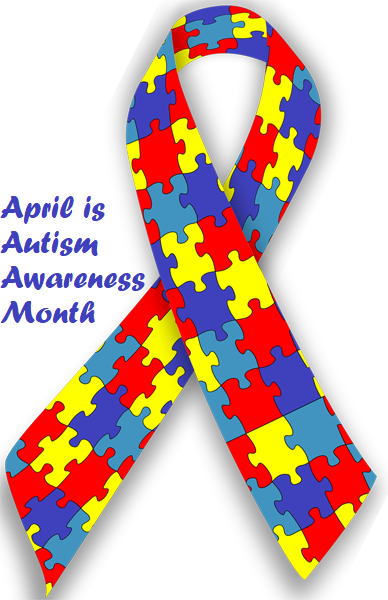Health Essentials
Understanding autism spectrum disorder

Autism spectrum disorder also known as ASD, according to the Centre for Disease Control, is a developmental disability that can cause significant social communication and behavioural challenges in an individual. According to the World Health Organisation in 2021, about one in 160 children has autism worldwide and in the US, it is estimated that about one in 59 children has autism. Even though the statistics in Ghana are not available, it is believed that the situation is no different as many children are diagnosed each day. Autism spectrum disorder begins in early childhood and eventually causes problems in the social functionality of children. Children show symptoms of autism within their first year and a small number of children appear to develop normally in the first year and then go through a period of regression between 18 and 24 months of age when they develop autism symptoms.

Symptoms of autism
The symptoms of autism can be found in three main areas
- Communication:
- One of the first indications of autism in toddlers is the lack of response to their names.
- Children with the autism spectrum disorder are most often non-verbal which means they cannot speak and cannot communicate their needs through speech.
- They do not point or bring objects to share interests.
- They have poor eye contact and lack facial expressions.
- They can’t seem to understand simple questions or directions.
- They may repeat words or phrases verbatim but would not understand how to use them.
- Social Interactions
- They may resist cuddling and holding and may seem to prefer playing alone, they often get lost in their world.
- They have inappropriate approaches to social interactions. they can be aggressive, passive or disruptive.
- Repetitive movements
- They perform repetitive movements such as rocking spinning or hand flapping
- They perform activities that could cause self-harm such as biting or headbanging.
- They develop specific routines or rituals and become disturbed at the slightest change.
- They don’t engage in imitation or make-believe play or pretend play.
Take your baby to see the doctor if he or she:
- doesn’t respond with a smile or happy expression by six months
- Doesn’t make sounds or facial expressions by nine months
- Doesn’t bubble or coo by 12 months.
- Doesn’t point or wave by 14 months
- Doesn’t say a single word by 16 months
- doesn’t indulge in pretend play by 18 months
- Doesn’t say two-word phrases by 24 months
- Loses language skills or social skills at any age.
Do not panic if your child has one or more of the symptoms above. That may not necessarily mean your child has autism. Babies develop at their own pace. However, it is important to see a doctor with your child if they tick any of the symptoms above.
Causes of Autism Spectrum Disorder
Autism spectrum disorder is a very complex disorder and as a result, it doesn’t have a single known cause. It is believed that both genetics and environmental factors play roles in a child developing ASD.
It affects children of all races but certain factors may increase a child’s risk of developing the condition. These include:
- The child’s sex. Boys are more likely to develop autism than girls.
- Family history
- Extreme preterm babies
- Parents age. Older parents are more likely to give birth to autistic children.
Treatment
There aren’t any known treatments for autism, however, when diagnosed early, intervention is most helpful and can improve behaviour skills and language development. Though children usually don’t outgrow autism spectrum disorder symptoms, they may learn to function well.
Autism is on the rise in Ghana and that means we need to come together as a nation and help children who develop this condition. They can do extremely well when given the right support and at any stage of their lives. Children with the autism spectrum disorder are not spiritually possessed, as some Ghanaians believe, they are children who deserve to be loved and supported to grow into their full potential. There are many adults living independently with the condition. Remember that early intervention is key.
The World Autism Awareness Day is marked internationally on April 2 every year, and there is a call for people to include autistic children in Quality Education. It is commendable to know that the government of Ghana has passed a law that mandates mainstream schools to accept autistic children. But it shouldn’t end there. There is the need to provide enough education on the condition to teachers, and the whole country at large as well as the building of infrastructure that can support children and people with the condition.
Source:
Augustina Otema Amarh
Autism Mum/ Content Creator
Health Essentials Ghana Limited
References:
- mayoclinic.org
- cdc.org
- https://www.un.org/en/observances/autism-day
Health Essentials
Do you want to be happy?

Don’t we all dream of a life that is filled with laughter? That may be a reason for chasing big bucks, which like the Golden Fleece eludes the majority of us.
Financial Wellness is extremely important but there are other factors that make us happy and healthy and eventually wealthy.
I will introduce a few everyday activities that are guaranteed to make you happy if you continue practising them.
You definitely do not need to live in Finland to experience happiness even though many people agree that is the “headquarters” of happiness.
1. Wake-Up Ritual
a. Say to yourself that today will be a beautiful day or a great day!
b. Ask God what He has in store for you. Use me Lord (if not a Christian what you believe in will be useful as well.
c. Remind yourself of your purpose in life and get out of bed.
d. Do Not grab your phone as the first thing for the day.
2. Pray
a. Talking to God has a way of calming our nerves. It brings about unexplained peace and when we add praise and worship then the floodgates open. That is how to win battles against unhappiness.
3. Smile
a. Definitely floods your body with feel good hormones and insulates you from stress.
b. Smiling is infectious so the more you smile the better and you set off a smiling OR happiness domino effect.
4. Meditate
a. Extremely good for your brain and an easy way to start is to do deep-breathing and just focus on your “breath” excluding all others. That is what some will prefer to call mindfulness. Being in the moment has immense benefits. Things you never knew existed suddenly spring up.
5. Exercise
a. That wonder drug that trumps virtually all others. Like smiling it does pour out feel good hormones. Strength training even goes an extra mile causing our muscles to act as “pharmacies” that pour out life-changing signals every time they contract.
6. Be kind to yourself & to others
a. We are often too harsh on ourselves. Give yourself a break. Self-care is the real deal!!
b. Being harsh to others has no benefits.
7. Spend some time doing nothing!
a. We need to re-set from time to time. Spend about 10 minutes a day doing absolutely nothing. There is happiness and innovation in “idling”. Do not abuse idling though.
8. Spend time with loved ones.
a. This is another powerful happiness “hack”. You have to make time and be intentional about this; talk on phone, send messages, arrange to meet for a drink or meal. Social Wellness ranks very high on the happiness index and it’s fairly easy to plug into it.
b. While spending time together remember that your choice of food and drinks also impacts on how happy or sad or anxious you may feel.
9. Indulge in a hobby.
a. Our bodies and brain love variety. Do you have a hobby? Get one
10. Write in your gratitude diary.
a. That is all it takes – keep doing it regularly.
11. Get a pet.
This list is not exhaustive but definitely a good start. Share your happiness hacks with me via email and together we can keep the world smiling and happy.
At the end of each day ask yourself if you did better than the previous day. That is all it takes. Doing better than the previous day for 365 days, for 5 years, 10 years… How amazing that will be!!!
AS ALWAYS LAUGH OFTEN, ENSURE HYGIENE, WALK AND PRAY EVERYDAY AND REMEMBER IT’S A PRICELESS GIFT TO KNOW YOUR NUMBERS (blood sugar, blood pressure, blood cholesterol, BMI)
Dr. Kojo Cobba Essel
Health Essentials Ltd/ Medics Clinic
(dressel@healthessentialsgh. com)
*Dr. Essel is a Medical Doctor with a keen interest in Lifestyle Medicine, He holds an MBA and is an ISSA Specialist in Exercise Therapy, Fitness Nutrition and Corrective Exercise. He is the author of the award-winning book, ‘Unravelling The Essentials of Health & Wealth.’
Thought for the week – “There is no magic formula to being happy but making a conscious effort to be happy goes a long way.” – Dr. Kojo Cobba Essel
By Dr. Kojo Cobba Essel
Health Essentials
Measure your blood pressure accurately, control it, live longer

May 17 is World Hypertension Day and please do not panic. This is not a stress-filled day that aims at increasing your blood pressure but rather it’s a day set aside to increase awareness of a serial yet silent killer. That is exactly what Hypertension it; its killing the young and old at an alarming rate yet in most instances people with high blood pressure may feel absolutely well.
The theme for this year is “Measure your blood pressure accurately, control it, live longer”
Do these when you take your blood pressure since the accuracy of the reading matters:
• If you have been walking or running rest for at least 5 to 10 minutes
• No caffeinated drinks or alcohol two or three hours before checking blood pressure
• Sit (sometime you may need to stand or lay in bed) comfortably with your back rested/supported and your arm for the cuff resting on a table of firm surface
• Have your feet flat on the floor and not legs crossed
• Ensure the cuff is the right size for your arm
• If using an electronic monitor ensure battery is working well
• If clothing covering arm is thick remove
• Loosen your neck-tie or belt if uncomfortable
• If you are not conversant with checking blood pressure, get the appropriate training
Global statistics show that only 50 per cent of those with hypertension are actually aware and that awareness in some areas may be as low as 10 per cent while awareness may exceed 75 per cent in a few areas.
The bitter truth is some people do not have enough information about the condition, a significant number do not have easy access to measuring their blood pressure and a few stubborn ones think it is better not to know if something is going wrong.
What do we need to understand about our blood pressure numbers? There are ALWAYS two numbers in a blood pressure reading such as 120/80mmHg. The top figure represents the force of the blood against the artery (blood vessel) walls as your heart beats and the lower value represents the force on the walls in between beats or while the heart rests. Both numbers are important.
Essentially when your blood pressure is higher than it should normally be all organs in the body are exposed to elevated pressures since arteries supply blood to every part of the body. These sustained high pressures will be causing harm gradually every minute of the day.
Prevention of high blood pressure is based mainly on adopting the appropriate lifestyle, while having regular medical check-ups to pick up conditions that can may lead to hypertension if not tackled early. Management of hypertension on the other hand requires a three-pronged attack in most situations;
• Lifestyle modifications
• Regular medical checks to pick up other conditions that be worsen our hypertension or general wellbeing
• Use of appropriate physician prescribed medication
Age and our genes may have a way of increasing our blood pressure or predisposing us to hypertension, but since we have no control over the choice of our family and years rolling by, it may be worth focusing on the above three that we can control to a large extent.
Lifestyle Modification
• Exercise adequately
• Do not smoke
• Limit or avoid alcohol
• Aim at fat (weight) loss
• Manage stress appropriately
• If you have sleep apnoea (intermittent snoring during sleep and feeling tired and sleepy on waking up) seek medical intervention
• Adopt the DASH (dietary approaches to stop hypertension) diet; low sodium (salt), increased potassium from fruits and vegetables, low or no saturated fats and increased fibre.
• Control conditions such as diabetes, cholesterol challenges and kidney disease.
Exercise need not be rushing to the gym to sweat out only, but taking walks, gardening, cleaning your home, using the stairs and many others. Exercise increases heart function and lowers blood pressure but there is a little hitch: the benefits of exercise on blood pressure do not last beyond 72 hours.
In short frequency is the watch word. Do not be a once a week or once a month exercise fan. The effect of exercise on the heart does not rely on past glory so if you were an athlete years ago but you have now become one with your sofa, I am sorry to disappoint you but you need to get moving NOW!
All types of exercises will benefit you and lower your blood pressure but a word of caution here;
• When your blood pressure is not controlled DO NOT lift weights above your head
• Do not overdo exercises of the upper body but lower body exercises such s squatting will enhance lowering of your blood pressure.
• Breathe properly especially while you train with weights; breathe out during the exertion phase as you lift a weight and breathe in while you relax.
• Of course brisk walking, swimming, use of the treadmill and other exercises that target heart function are also a must
When all is said and done, you can never know our blood pressure without measuring or checking it. Take a few minutes to check your blood pressure and ensure at least one other person checks their blood pressure before the end of the month.
Associations, companies and all identifiable groups should ensure they check their blood pressure and go an extra mile and as a corporate social responsibility help to check the blood pressure of hundreds or even thousands of people. You will be saving lives.
AS ALWAYS LAUGH OFTEN, ENSURE HYGIENE, WALK AND PRAY EVERYDAY AND REMEMBER IT’S A PRICELESS GIFT TO KNOW YOUR NUMBERS (blood sugar, blood pressure, blood cholesterol, BMI)
Dr. Kojo Cobba Essel
Health Essentials Ltd/ Mobissel
(dressel@healthessentialsgh.com)







